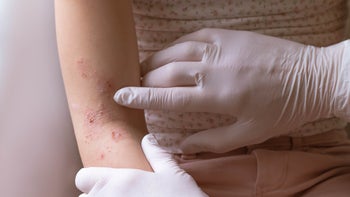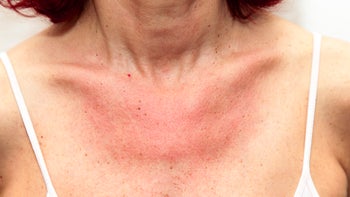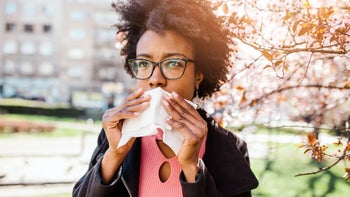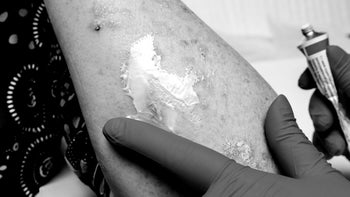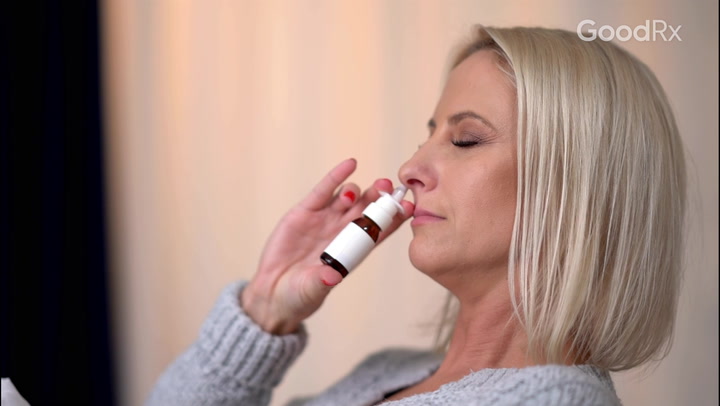
Can Allergies Cause Swollen Lymph Nodes?
Key takeaways:
Seasonal allergies shouldn’t cause swollen lymph nodes. But they can increase your risk for developing sinus infections. Sinus infections can cause swollen lymph nodes.
Viral illnesses can cause swollen lymph nodes. These illnesses can be mistaken for seasonal allergies because they cause similar symptoms.
Seek medical care if you have swollen lymph nodes. Your medical team can help find out what’s causing the swelling.
Table of contents

Lymph nodes are an important part of your immune system. They can get swollen from time to time. Swollen lymph nodes — also called lymphadenopathy — can sometimes be a sign of a serious medical condition. So, it’s important to know what causes them.
If your seasonal allergies have been acting up, you might be wondering if they’re causing lymph node swelling. Here’s what you need to know about swollen lymph nodes and allergies.
What are lymph nodes?
Lymph nodes are one of your body’s natural filters. A substance called lymphatic fluid travels throughout your body and picks up viruses, bacteria, and other harmful substances.
Search and compare options
As lymphatic fluid travels through your body, it passes through your lymph nodes. Lymph nodes are a collection of specialized tissue and are located throughout your body. They trap and destroy any harmful substances or bugs in your lymphatic fluid.

You have hundreds of lymph nodes throughout your body, but the ones you’re most likely to notice are located in your:
Neck
Armpits
Near your groin
These lymph nodes are close to the surface of your skin, so they’re easier to feel. Other lymph nodes are deeper inside your body, so you never notice or feel them.
How can you tell if your lymph nodes are swollen?
A normal lymph node is 1 cm in size or smaller. You shouldn’t be able to see or feel your lymph nodes.
Swollen lymph nodes can feel like a bump just underneath your skin. They may be the size of a pea or even larger. Often, they feel rubbery and move around easily when you press them with your fingers.
Sometimes, swollen lymph nodes can feel hard and don’t move. These are called “fixed” lymph nodes. They may also feel tender or warm to the touch.
If it’s not allergies, then what is it? Here are the most common causes of swollen lymph nodes.
Other signs of allergies: Allergies don’t often cause swollen lymph nodes, but they can cause these seven symptoms.
Feeling stuffed up? Here’s how to relieve sinus pain and congestion at home.
You can check for swollen lymph nodes in your neck, under your arms, and near your groin. To check for swollen lymph nodes, move your fingers in a circular motion over these areas. It’s not always easy to feel for lymph nodes. Your primary care provider can help you learn the right way to check them.
Can seasonal allergies cause swollen lymph nodes?
Seasonal allergies shouldn’t cause swollen lymph nodes. But seasonal allergies can increase your risk of getting a sinus infection (sinusitis).
If left untreated, seasonal allergies can cause inflammation in your sinuses. Persistent irritation makes it easier for bacteria to invade your sinuses and cause an infection. Sinusitis can cause swollen lymph nodes, which you may notice in your neck and around your ears.
Infections are another reason you may notice swollen lymph nodes during allergy season. Infections are the most common reason for lymph node swelling.
Viral upper respiratory tract infections, like the common cold, can cause symptoms similar to seasonal allergies, including:
Cough
Congestion
Runny nose
Headache
Because the symptoms are so alike, it can be hard to tell if you have a cold or allergies. Many people think they have bad allergies when they actually have a viral infection. So, seek medical care if you notice lymph node swelling during allergy season. You may actually have an infection that’s causing symptoms.
Also, keep in mind that seasonal allergies are just one type of allergic reaction. Some severe forms of allergic reactions can cause swollen lymph nodes. For example, some types of medication allergies — like Drug Reaction with Eosinophilia and Systemic Symptoms (DRESS) syndrome — can cause swollen lymph nodes. But these types of allergic reactions are severe. And they cause symptoms that are very different from seasonal allergies. People with these types of allergies need to be cared for in a hospital.
What else can cause swollen lymph nodes?
Seasonal allergies aren’t usually the cause of lymph node swelling. So, what else could be causing them?
Infections
Infections are the most common cause of swollen lymph nodes. Viral, bacterial, and fungal infections can all cause lymph node swelling. Some infections are more likely to cause lymphadenopathy than others.
For example, Epstein Barr Virus — which causes mononucleosis — is well known for causing swelling of the lymph nodes in your neck. Other common infections that can lead to swollen lymph nodes in your neck include:
Common cold viruses
Autoimmune conditions
Some autoimmune conditions can also cause swollen lymph nodes, including:
People with these conditions usually have other symptoms, too. It’s uncommon for swollen lymph nodes to be the only symptom. Often, people seek medical care for other symptoms, and their healthcare team notices their lymph nodes are swollen during an evaluation.
Cancer
In some cases, swollen lymph nodes can be a sign of cancer. For example, a swollen lymph node may be the first thing people notice before they’re diagnosed with non-Hodgkin lymphoma. But it’s uncommon for this to be the only symptom that people experience.
People who already have a cancer diagnosis may be taught how to check their lymph nodes. Sometimes, swollen lymph nodes can be a sign that cancer has moved to another part of the body (metastasis). That’s why people with cancer may be asked to check for lymph node swelling. Their healthcare team will also check for new lymph node swelling.
When should you seek care for swollen lymph nodes?
It’s best to seek care if you notice swollen lymph nodes. Your medical team can check your lymph nodes and order tests to see what’s causing your swelling. Often, swelling is a sign of an infection. Your team can diagnose your infection and offer you treatment.
You should seek care right away if your swollen lymph nodes are red, warm, or tender to the touch. These are signs that the lymph node itself could be infected.
There are times when swollen lymph nodes can be a sign of a more serious medical condition. Seek medical care as soon as possible if:
You’ve had swelling for more than 3 weeks. Swollen lymph nodes are often caused by an infection. They’ll return to their normal size once the infection goes away. This can take up to 3 weeks. If your cold is gone or you’ve finished your course of antibiotics, but your swelling hasn’t gotten better, you should seek care. Your swelling could be caused by something else.
You have swelling in more than one place. Infections usually cause lymph node swelling in just one part of your body. If you have lymph node swelling in more than one area, it could be a sign that something else is causing the swelling.
You have unusual symptoms. You should seek care if your lymph node feels hard instead of rubbery or if it doesn’t move beneath your fingers. These can be signs of cancer. You should also seek care if you have symptoms like night sweats, weight loss, or excessive tiredness along with swollen lymph nodes. These can be signs of an autoimmune condition.
The bottom line
Seasonal allergies don’t cause swollen lymph nodes. But they can increase your risk of developing sinusitis. Sinusitis can cause swollen lymph nodes. Infections are the most common cause of swollen lymph nodes. But autoimmune conditions and cancer can also cause them. Seek medical care if you have swollen lymph nodes. Your medical team can help determine what’s causing your lymph node swelling.
Why trust our experts?


References
Freeman, A. M., et al. (2023). Lymphadenopathy. StatPearls.
Gosche, J. R., et al. (2007). Acute, subacute, and chronic cervical lymphadenitis in children. Seminars in Pediatric Surgery.
Kumari, R., et al. (2011). Drug hypersensitivity syndrome. Indian Journal of Dermatology, Venereology, and Leprology.
Maini, R., et al. (2023). Adenopathy. StatPearls.
National Cancer Institute. (n.d.). Lymphatic system. National Institutes of Health.
Rodolfi, S., et al. (2024). Lymphadenopathy in the rheumatology practice: A pragmatic approach. Rheumatology.
University Hospitals Plymouth. (n.d.). How to check your lymph nodes. National Health Service.



